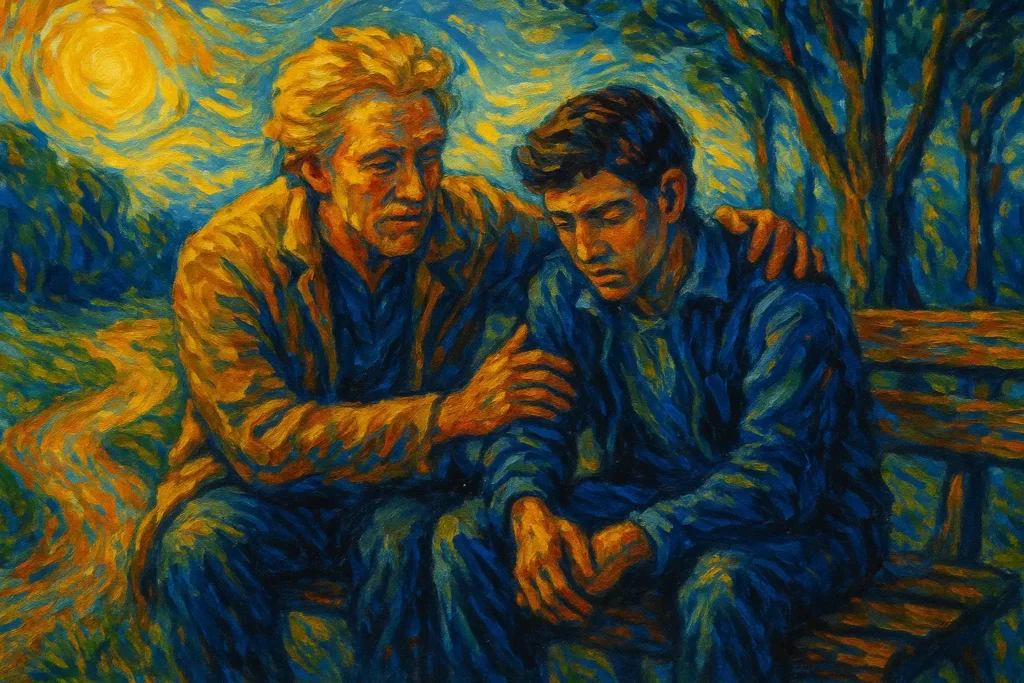How One Trusted Relationship Can Change the Entire Trajectory of a Young Adult’s Life
When a young adult begins the difficult journey of recovery from substance abuse—or seeks to prevent it altogether—what they need most isn’t a lecture, a list of rules, or even a well-intentioned treatment plan. They need a person. A voice that says, “I see you. I’ve been where you are. And I believe in what’s next for you in your developing life.”
That person is a mentor. And the impact of mentorship in the lives of young adults struggling with addiction or at risk of falling into it cannot be overstated. It can mean the difference between relapse and resilience, between hopelessness and healing.
Mentorship is powerful because it addresses something that no program or prescription can replicate: human connection. This has been our overarching theme in our blogs for several months; here is yet another way that powerful asset can present itself. In many cases, addiction grows in isolation and secrecy. But recovery? Recovery grows in relationships—ones rooted in trust, consistency, and compassion.
Mentorship can deliver that kind of relationship and Gregg’s Gift has begun to investigate adding this form of resource to its roster of supported services on behalf of substance abuse recovery and prevention.
Young adults are at a critical developmental stage. They are forming their identities, exploring independence, and searching for meaning. They get ideas and a sense of approval from many sources: their family interactions, opinions of friends and teachers, feedback from social media, entertainment and society in general. The presence of a stable, nonjudgmental mentor provides a safe harbor—someone to talk to, confide in, and emulate.
Research consistently shows that young people with strong adult connections are more likely to stay sober, return to school, find work, and rebuild relationships. A mentor doesn’t have to be a therapist, sponsor, or expert; more important than their profession is their open and willing presence; someone who listens, encourages, and shows up.
A Personal Story: Meet Marcus and Joe
Marcus was 19 when he entered a residential recovery program we helped fund. He had burned bridges with family, dropped out of school, and cycled through short-term jobs and even shorter-lived friendships. He felt broken.
Then he met Joe—a volunteer mentor and a former addict himself. Joe didn’t offer quick fixes. He offered lunch once a week. He showed up for Marcus’s court dates. He helped him fill out job applications and reminded him to breathe during panic attacks.
Over time, Marcus began to trust Joe. He opened up about his fears, anger, and a deep desire to feel “normal.” Joe helped him realize that being normal wasn’t the goal. Being whole was; a huge lesson that’s easily lost in the teenage desire to ‘fit in’ and be accepted. Today, Marcus is three years sober. He’s training to become a substance abuse counselor. And yes, he’s now mentoring someone else.
Mentorship in recovery isn’t a rigid process. It looks different for every young adult, but here are a few common themes:
They listen. Often, mentors are the first adults to hear a young person’s story without judgment.
They model healthy behavior. Whether it’s how to handle conflict, build structure into the day, or just show up on time—mentors lead by example.
They offer accountability. Gentle check-ins and encouragement can help a young adult stay on track. At an age when rebelling against a parent is the norm, having another trustworthy adult for this role builds a sense of responsibility to others.
They restore dignity. A mentor believes in someone who may not yet believe in themselves, may feel a mistake has destroyed a positive sense of self.
Mentorship isn’t only for those already struggling with substance use. It’s one of the most effective tools available for prevention. Young people who are connected to positive adult role models are far less likely to experiment with drugs or alcohol in the first place. In schools, community centers, and after-school programs, mentors offer guidance and a listening ear. They can spot signs of distress early and gently guide someone toward support before a crisis escalates.
As the founder of a charity focused on recovery and prevention, I see the extraordinary ripple effects of mentorship often. But here’s the truth: mentoring programs, as all the resources Gregg’s Gift vigorously support, don’t run on goodwill alone. They require training, coordination, background checks, transportation stipends, knowledgeable and patient management, and more.
Your support allows us to:
- Recruit and train mentors who are a strong match for our young participants.
- Champion an inpatient rehabilitation program that transforms lives impacted by addiction and substance use through proven, comprehensive, and patient-centric treatment plans.
- Offer free rides to recovery services for people living with substance use disorder
- Provide safe meeting spaces where connection can flourish without judgment or distraction.
- Support mentorship-integrated recovery programs that increase retention, reduce relapse, and inspire long-term change.
You can learn about the full range of support provided by Greggs Gift here.
For Parents: What to Look For
If you’re a parent of a young adult in crisis or just concerned, consider asking these questions:
- Does my child have at least one trusted adult in their life who is not family?
- Would a mentor be a helpful addition to their support network?
- Am I willing to allow someone else to guide them, even if I feel I should be the one?
Parents often feel pressure to be everything to their child, especially during difficult times. But the truth is, the presence of a mentor is not a threat to your role—it’s a gift for your child. Many young people will say things to a mentor that they won’t share with a parent, not out of rebellion, but out of a desire to protect the relationship.
The road to recovery is not straight or short. But when a young adult walks that road with someone beside them—someone who has walked it before, or simply someone who, in a positive way, refuses to let them give up—every step becomes a little more possible. Mentorship doesn’t eliminate the pain of the past. But it builds a bridge toward a more hopeful future.
If you’ve ever wondered how you could make a meaningful impact in the life of someone in recovery, this is your moment. Whether you give your time, your funds, or your encouragement, know this: mentorship transforms lives. And it can start for someone you love, today, with you. If other means of supporting this population is more personal for you, perhaps you’ll find it here.
Is there a topic you’d like us to address in the realm of substance abuse? Please let us know.

